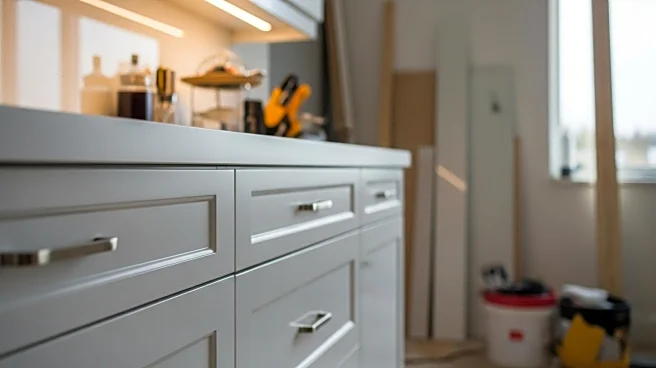What's Happening?
The U.S. has implemented new tariffs on imported kitchen cabinets, bathroom vanities, and upholstered wooden furniture, starting at 25% and increasing to 50% in January. The tariffs, introduced under a proclamation by President Trump citing national security,
aim to boost domestic production and protect U.S. businesses from foreign trade practices. However, small business owners in the home improvement industry express concerns about potential short-term impacts, including increased costs for clients and postponed renovation projects.
Why It's Important?
The tariffs could lead to higher prices for imported cabinetry, affecting consumer demand and remodeling activity. While intended to support domestic manufacturers, the tariffs may disrupt supply chains reliant on international materials. Businesses may face challenges in absorbing costs or passing them on to customers, potentially impacting sales and profitability. The broader economic implications include shifts in consumer behavior and potential strain on the home improvement sector.
What's Next?
As the tariffs take effect, businesses will need to adapt to changing market conditions and explore strategies to mitigate cost increases. Domestic manufacturers may benefit from increased demand, but supply chain constraints could limit their ability to capitalize on new opportunities. Stakeholders will monitor the impact on consumer confidence and industry dynamics, with potential adjustments in pricing and product offerings.
















